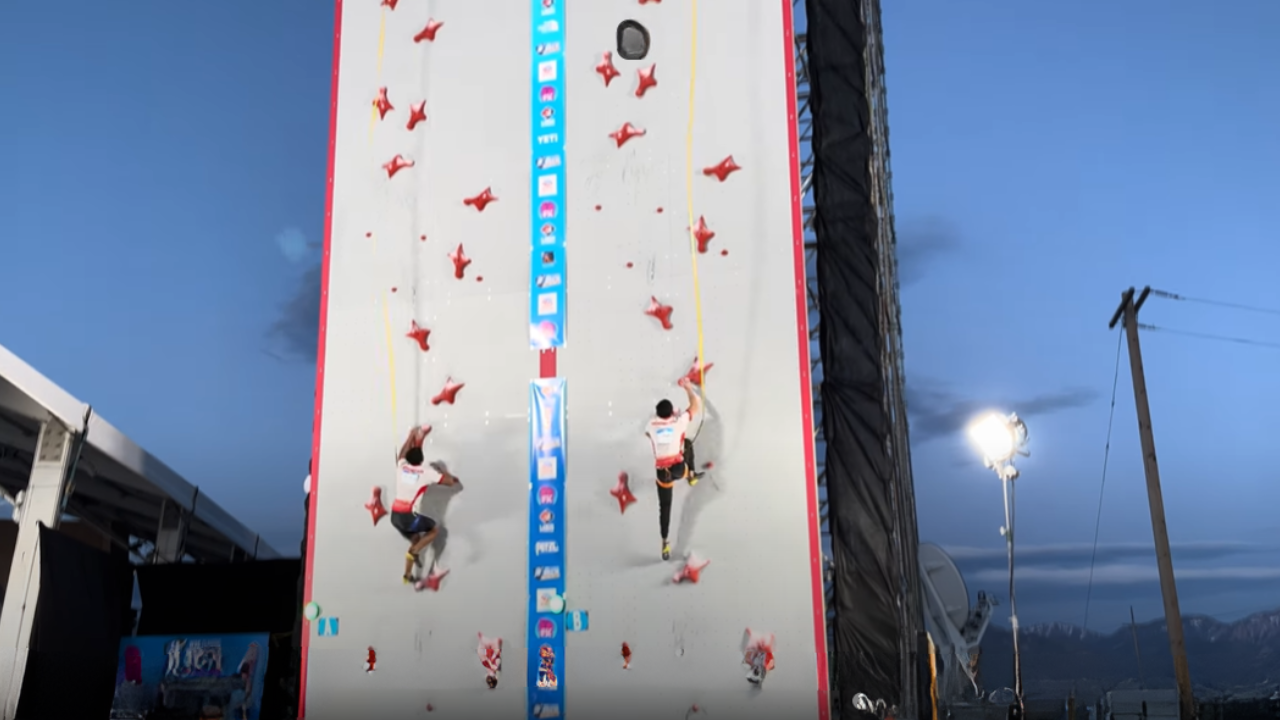Climbing Olympics at 2024 Paris:How it operates, the stars of Team USA, and other information

The information below pertains to climbing Olympics during the 2024 Summer in Paris.
When was climbing Olympic added to the Games?
Climbing Olympics made its debut at the 2021 Tokyo. Before that, the sport was introduced on the Olympic stage during the 2018 Youth Olympic Games in Buenos Aires.
The decision to include climbing to the curriculum, along with skateboarding and surfing, was a part of an effort to include more urban sports with an emphasis on gaining popularity among younger people. Sport climbing will still be offered at the 2028 Summer Olympics in Los Angeles.
How does the process of climbing Olympic work?
Three disciplines make up Olympic sport climbing: bouldering, speed, and lead.
Bouldering: In a set amount of time and with the fewest number of tries feasible, athletes climb a 4.5-meter (about 15-foot) wall without the use of ropes.
Lead: In six minutes, climbers reach their maximum height on a 15-meter (almost 50-foot) wall in a single attempt.
Speed: Competitors ascend a 15-meter wall with a five-degree incline in one-on-one elimination rounds and a timed race. For men, the greatest athletes can finish in under six seconds, and for women, it usually takes under seven.
In addition, the scoring scheme differs from Tokyo’s. To get the ultimate score for the 2021 Games, the scores from each discipline were multiplied by one another. However, the new judging approach for bouldering and lead comprises a maximum of 200 points, eliminating the factor of speed climbing. In bouldering, climbers earn points by moving through several “zones” on the wall (5 points for a low zone, 10 points for a high zone), and completing the top hold (25 points). A flawless bouldering round consisting of flashing four boulder problems is worth 100 points. Points are subtracted for attempts.
Athletes that are in the lead get points by holding the top 40 holds; as they go up the wall, more points are awarded for each hold. An athlete will receive an additional 0.1 points on top of their previous score if they advance to the next hold but are unable to hold it securely.
In bouldering and lead, twenty men and twenty women compete.
There are fourteen participants in the speed category for men and women. There are two speed runs for each climber (on two distinct walls). Based on their fastest time, they will then be rated 1 through 14, and those rankings will determine the pairings for the subsequent elimination rounds.
Top American climbers Olympics competing in the 2024 Summer in Paris
Sam Watson: The 18-year-old current world record holder for men’s speed is Watson, with a time of 4.79 seconds. He won gold in the Pan American Games in Santiago last year and finished 2023 rated eighth in the world in the men’s speed category.
Natalia Grossman: She placed first in the women’s bouldering competition last year and fifth in the bouldering and lead combination division. At the Pan American Games, Grossman won gold in the boulder and lead events.
The daughter of former climbing world cup champions Robyn Erbesfield-Raboutou and Didier Raboutou, who is French, Brooke Raboutou finished fifth in Tokyo. She speaks excellent French.
In the quickest sport at the Olympics in Paris, speed climbing, American teenager Sam Watson breaks the world record.
At least in terms of vertical travel, an 18-year-old from Texas can claim to be the quickest Olympian of all time as of Tuesday.
Sam Watson became the proud owner of an unusual athletic achievement when he established a world record for speed climbing in the suburbs of Paris, where a temporary climbing wall had been constructed for the Olympics, with a time of 4.75 seconds.
Watson remarked, “I guess 4.75 is the fastest time ever run in an Olympic timed sport.” “I guess no one can take that away, that’s a cool title.”
A brief moment of distraction might have serious consequences for spectators at a speed climbing competition. In around five seconds, athletes ascend a 15-meter wall, scampering up a succession of grips and toward a red buzzer at the top of the course.
In this competition, quick reflexes and fast-twitch muscle fibers are essential, but an athlete may be eliminated from the tournament for a simple foot error or brief loss of focus.
Prior to Veddriq Leonardo of Indonesia matching the previous world record on Tuesday in the heats, Watson set the mark for speed climbing in a World Cup event in China earlier this year with a timing of 4.79 seconds. In the subsequent round, Watson again moved more quickly.
This is a sport where winning a head-to-head race is just as important as hitting the maximum speed. If it means smacking the red buzzer at the top of the wall ahead of the person next to you, even a slow time can advance to the next round.
Watson declared, “I want to win these races and place first on the podium.” However, in actuality, I did move much more quickly, and I did believe that setting a world record was feasible.









